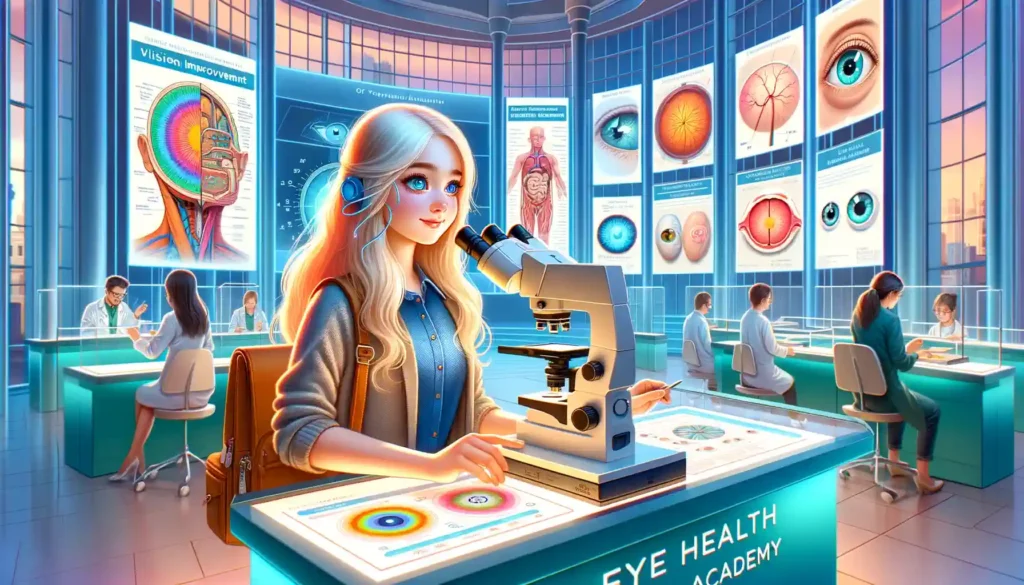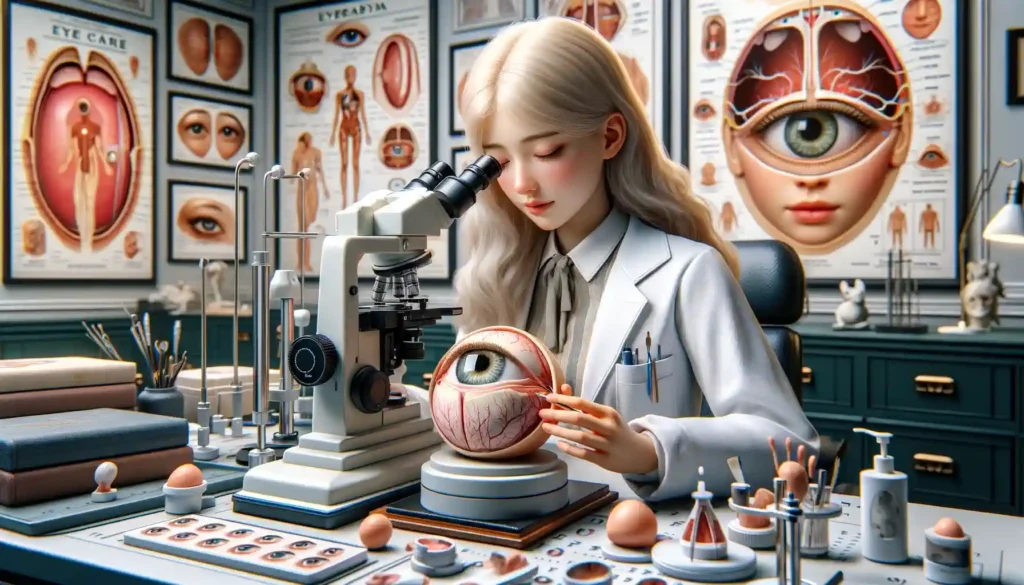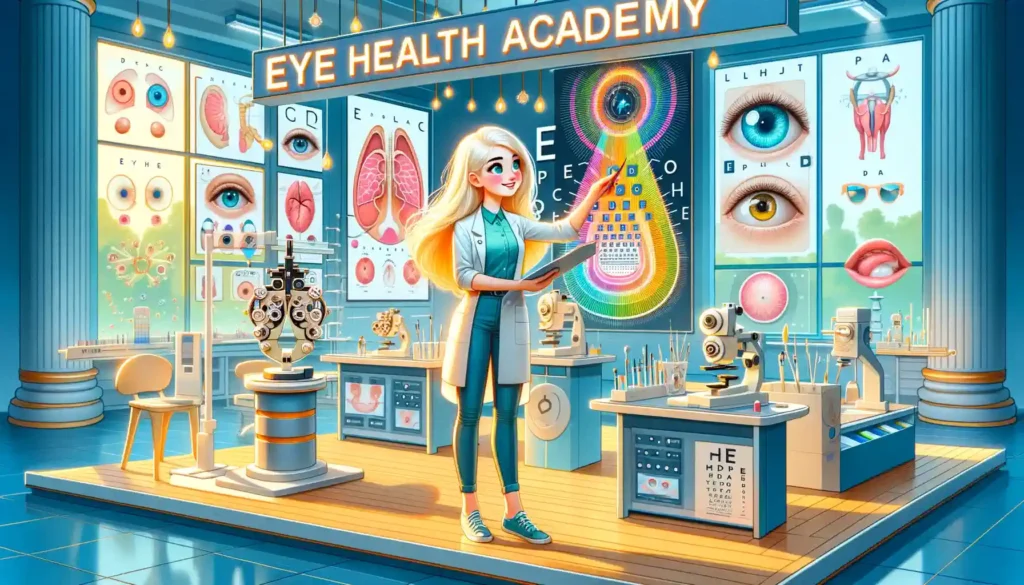Improving eyesight is not solely a physical endeavor; it deeply intertwines with the mental and emotional states of an individual. Psychological barriers can significantly hinder the process of vision improvement. Understanding and overcoming these barriers is crucial for anyone looking to enhance their eyesight naturally. This article explores the psychological obstacles involved in eyesight improvement and strategies to overcome them.

Recognizing Psychological Barriers
1. Stress and Anxiety
Constant stress and anxiety can lead to chronic activation of the “fight or flight” response, which, in turn, affects vision by causing the eye muscles to tighten and vision to narrow.
2. Negative Beliefs and Expectations
Believing that eyesight deterioration is inevitable with age or that improvement is impossible can create a self-fulfilling prophecy, preventing individuals from taking steps toward vision improvement.
3. Fear of Letting Go of Glasses
For many, glasses become a part of their identity. The thought of not needing them anymore can provoke anxiety and resistance, hindering progress.
4. Overwhelm and Frustrated with Progress
Feeling overwhelmed by the amount of information available or frustrated with the pace of progress can lead to discouragement and abandonment of eye health practices.
Strategies to Overcome Psychological Barriers
1. Mindfulness and Relaxation Techniques
Incorporate mindfulness practices such as meditation, yoga, and deep breathing exercises into your daily routine. These practices can help reduce stress and anxiety, relax eye muscles, and improve focus and vision over time.
2. Positive Visualization and Affirmations
Engage in positive visualization techniques and affirmations. Visualize your vision improving day by day, and affirm your ability to see clearly. This positive mindset can reframe your expectations and open the path to improvement.
3. Incremental Goals and Celebrating Small Wins
Set small, achievable goals for your vision improvement journey. Celebrating these milestones can provide motivation and a sense of accomplishment, reducing overwhelm and frustration.

4. Education and Understanding
Learn about the anatomy of the eye, how vision works, and the science behind natural vision improvement techniques. Understanding the potential for change can dismantle negative beliefs and empower you with knowledge.
Take a look on the Eyesight Academy Course to educate yourself with in-depth knowledge for your eye health and sight boost.
5. Professional Guidance
Consider consulting with a vision therapy professional or psychologist specializing in health-related behavior change. They can provide personalized strategies to address psychological barriers and support your journey toward a better vision.
6. Gentle Transition Away from Glasses
If you’re dependent on glasses, consider a gradual reduction in their use under professional guidance. Start by removing them during safe, low-risk activities to slowly adjust and gain confidence in your natural vision.
7. Patience and Perseverance
Acknowledge that improving vision is a gradual process that requires time and dedication. Practicing patience and maintaining a consistent effort are key to overcoming psychological barriers and achieving progress.
Education and Understanding of Natural Eye Health Improvement
In an era where screens dominate our lives, natural eye health improvement emerges as a crucial topic, warranting deeper understanding and education. This article explores the importance of education in promoting natural eye health, outlining effective strategies, and shedding light on common misconceptions.
The Significance of Eye Health Education
Education on natural eye health is pivotal in preventing and managing common eye problems without immediate recourse to corrective lenses or surgical interventions. Understanding the mechanics of vision and the factors that influence eye health can empower individuals to make informed choices about their eye care, leading to better eye health outcomes.
Overcoming Misconceptions
A significant barrier to natural eye health improvement is the prevalence of misconceptions. Many believe that poor vision is an irreversible condition or that eye health cannot be improved without medical intervention. Educational efforts must address these myths, providing evidence-based information on how lifestyle changes can positively affect eye health.
The Role of Technology
While excessive screen time is often vilified for its negative impact on eye health, technology also plays a crucial role in education and the promotion of eye health. Apps that remind users to take breaks, websites offering eye exercises, and online platforms providing educational resources can all contribute to better eye health.
Eye Health boost by overcoming Psychological barriers Conclusion
Improving eyesight is as much a mental challenge as it is a physical one. By recognizing and actively addressing psychological barriers, individuals can unlock a significant component of their vision improvement journey. Through a combination of relaxation techniques, positive mindset practices, incremental goals, education, community support, professional guidance, and patience, it is possible to overcome these barriers and move closer to achieving a better natural vision.
Education and understanding are fundamental to improving natural eye health. By dispelling myths, promoting healthy lifestyle choices, and leveraging technology, individuals can be empowered to take control of their eye health. As we continue to navigate a world saturated with screens, the importance of this education cannot be overstated. Encouraging proactive measures and providing the necessary resources for natural eye health improvement can lead to a brighter, clearer future for all.

